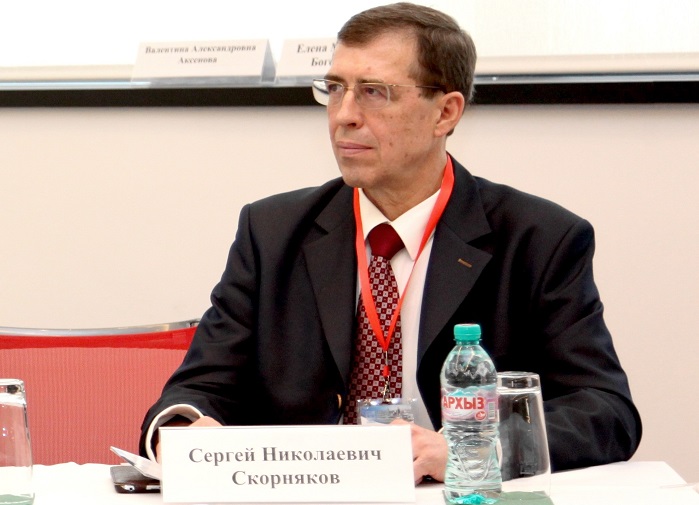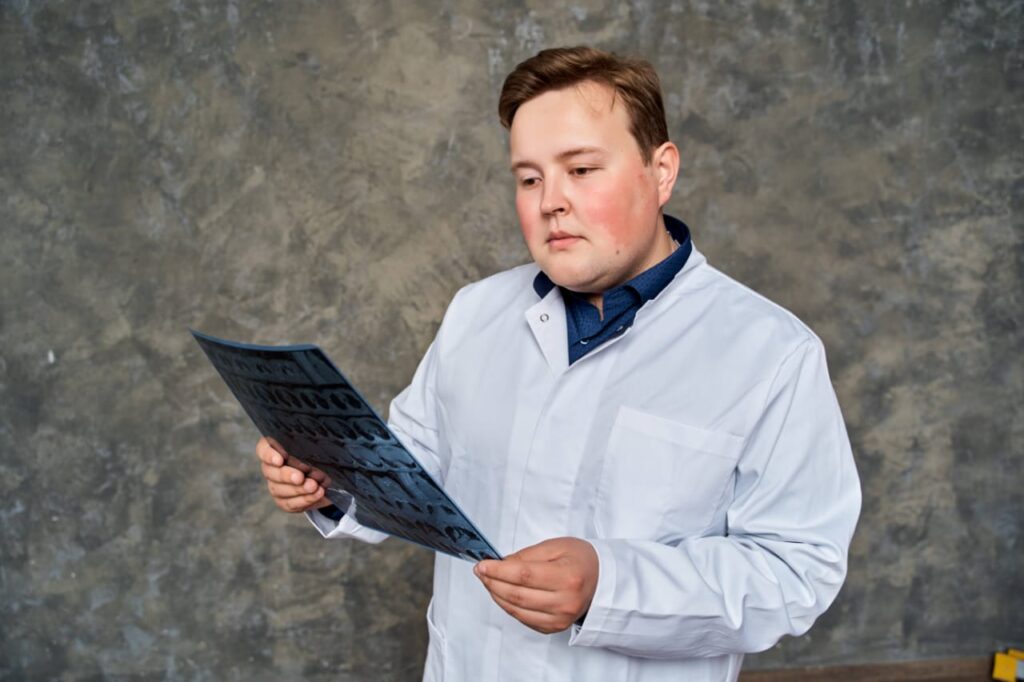 Telegram, ВКонтакте, Одноклассники
Telegram, ВКонтакте, Одноклассники
 Telegram, ВКонтакте, Одноклассники
Telegram, ВКонтакте, Одноклассники

Russian doctors have managed to achieve unprecedented success in reducing the incidence and mortality of tuberculosis – over the past decade, both indicators have decreased by one and a half to two times. Sergei Skornyakov, head of the Department of Phthisiology and Pulmonology of the Ural State Medical University (USMU), head of the scientific and clinical department of the Ural Research Institute of Phthisiopulmonology, and chief phthisiatrician of the Ural Federal District said in advance of the World Tuberculosis Day that however, a dangerous infection still remains a world-class problem.
«Of course, tuberculosis changes in the development of society, mycobacterium and its genome change. Increasing drug resistance is one of the global health challenges. Another factor is the spread of HIV infection, which, due to its pathogenetic nature, forms vulnerable contingents of patients and greatly increases the risks of the transition of latent tuberculosis infection into active forms of the disease» the USMU professor explained.
According to Sergei Skornyakov, today phthisiology is not only socially significant, but also a high-tech area: modern detection methods are used. This methods are based on the latest achievements of immunology and genetic engineering, molecular genetics methods for studying the pathogen and the choice of therapy regimens, innovative technologies for surgical diagnosis and treatment and other types of high-tech medical care for patients. More and more skills in related specialties are required from a phthisiatrician – for example, knowledge in the field of infectious diseases is especially needed.
The morbidity structure is shifting towards medical risk factors – more often in the practice of phthisiatricians there are people with advanced stages of HIV infection, especially if the patient is not receiving antiretroviral therapy, said Sergei Skornyakov. The risk of developing tuberculosis is increased by diabetes mellitus, any severe debilitating diseases, especially in contact with a source of infection.
«Another reason that begins to worry us is tuberculosis associated with drug immunosuppression. Transplantology is actively developing – patients after transplantation require immunosuppressive therapy throughout their lives; in the treatment of a number of serious diseases with an autoimmune mechanism, highly effective genetically engineered biological drugs are successfully used – selective TNF-α (tumor necrosis factor – alpha) blockers, however, against this background, the risks of developing tuberculosis increase» Sergey Skornyakov says.
Tuberculosis can affect all organs and systems, except for teeth and nails, however, a healthy person has a fairly high resistance to this infection, Sergei Skornyakov noted. To protect yourself from tuberculosis, it is necessary to observe the basic principles of a healthy lifestyle, which include rational nutrition, mental hygiene, compliance with basic sanitary and epidemiological rules, and timely preventive examinations.
«Our health is in our hands. If you have any incomprehensible ailments, you need to contact a specialist. For tuberculosis, this is the so-called group of small intoxication symptoms: weakness, fatigue, sweating, subfebrile condition, and, of course, «inexplicable» cough; in children, the first manifestations of infection are often behavioral disorders – irritability, tearfulness, resentment, decreased attention, memory and, as a result, motivation to study and academic performance» the professor of USMU explained.
The earlier the disease is detected, the easier it is to cure it, even in the case of multiple drug resistance of the pathogen, Sergey Skornyakov says. Progress does not stop – modern chemotherapy regimens are being introduced, quite recently, another fundamentally new drug against tuberculosis, recommended by WHO, was registered in Russia. Treatment takes from 9 months to 2 years, so if a disease is detected, «you need to be patient, courageous, willing to cooperate with a doctor and defeat the disease».
By the way, a wide range of clinical opportunities and undoubted prospects for professional growth and development of a young specialist in the field of anti-tuberculosis care to the population actively attract graduates of our University, the head of the department notes:
«Moreover, young phthisiatricians will have to study, work, and engage in priority scientific research in modern, well-equipped clinical bases of the department – in the Sverdlovsk Regional Tuberculosis Dispensary and in the clinic of the Ural Research Institute of Phthisiopulmonology».
One of the residents of USMU, who will soon become a certified phthisiatrician, is Nikita Stepanov:

«I became interested in phthisiology in the 5th year of the pediatric faculty at the first lecture by Yuri Petrovich Chugaev, later I began to actively participate in the work of the student scientific society in this area» the resident said. Now Nikita works as a trainee doctor in the first children`s tuberculosis department of the Regional Tuberculosis Dispensary, from which he has received a targeted referral upon admission to the residency.
«At first I worked at the reception, now – in the hospital. In practice, there are many different clinical cases, clinical scenarios. I can say that the residency is very interesting» the young specialist said.